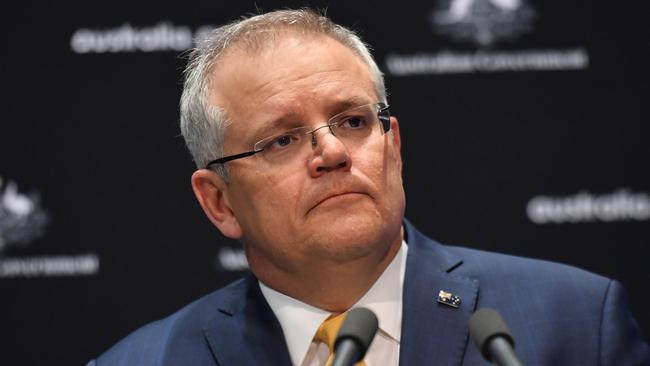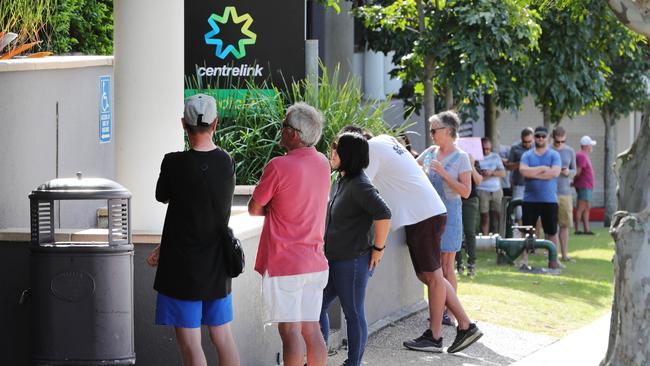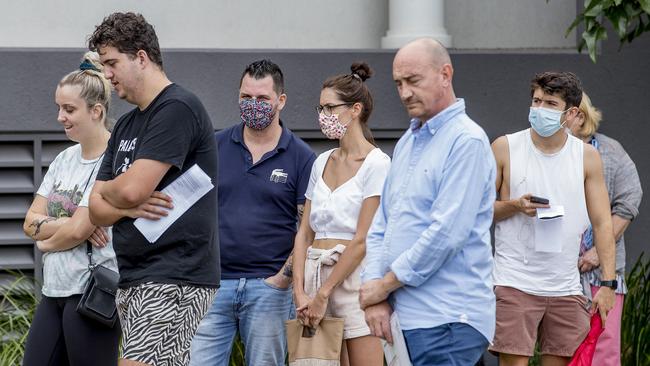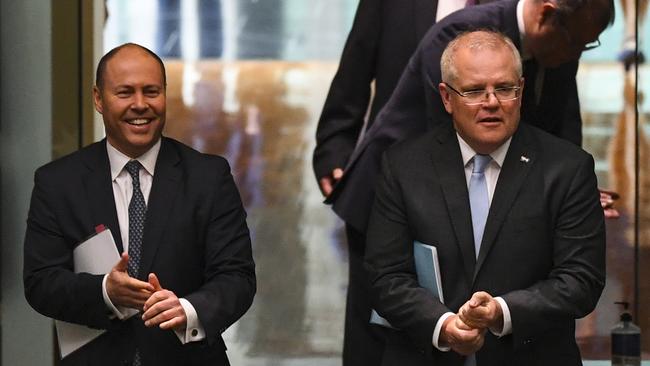Peta Credlin: Morrison’s COVID-19 JobKeeper payment will worsen economic crisis
COVID-19 is decimating small businesses across Australia, and sadly, the Government’s welfare assistance package, however well intentioned, is only likely to make things worse, writes Peta Credlin.
Rendezview
Don't miss out on the headlines from Rendezview. Followed categories will be added to My News.
Whether they voted for him or not last May, most Australians give Scott Morrison credit for keeping them safe from the worst of coronavirus.
Cast your mind back a month ago when the lockdowns began in earnest, and you will be reminded of how far we’ve come in flattening the curve and protecting life.
I don’t envy the difficult decisions the Prime Minister has had to make, day after day, as he’s forced economic hardship on millions in order to save lives.
I am not one of those who is overly critical of any immediate mistakes – the very nature of an unprecedented crisis is that it’s hard to avoid the unintended consequences of policy-on-the-run because a fast moving pandemic demands a fast response.
The bigger challenge is once the decisions are implemented, is to review them as a collective, and not just single decisions in a moment in time, and from that, be brave enough to change what isn’t working.
In Australia, over the years, we’ve done a lot of thinking about the health aspects of dealing with a pandemic but almost no thinking about dealing with the economic aspects, and it shows. Because we were quick to impose entry restrictions on China and then imposed quarantine restrictions on all returning travellers, we’ve had less than 7000 confirmed cases of coronavirus and fewer than 80 deaths. But when it comes to the economic impact of this virus, we’re still headed for the full economic hit despite largely avoiding the health disaster.

If we had gone harder earlier (border shutdowns, forced quarantine back in February) as I am told some in the government wanted, we might have lessened the economic hit but that’s for another column.
As it stands, three quarters of a million Australians have lost jobs and we’ve seen half a million extra claims for unemployment benefits in just a few weeks. Plus, says the Reserve Bank governor, a 10 per cent contraction of the economy. It’s also added over $300 billion to our national debt and that’s before the inevitable clamour to extend all of these extra payments beyond the promised six months only.
Weeks ago, you will recall the government’s first response was to make immediate cash payments to pensioners, even though the places they could most readily spend the money were all closed. Indeed, within hours of his announcement, I put this very contradiction to the PM in an interview on my show and was dismissed. Yet I knew older Australians wouldn’t be out and about spending as my own Mum was already locked up at home having watched what was unfolding overseas.

The government’s second response was to double the dole for people who were suddenly losing their jobs to $550 per week, and marketing it as the new ‘Job Seeker’ payment. When that produced giant queues outside Centrelink, its third response was to introduce the flat-rate $750 a week ‘JobKeeper’ payment for businesses that kept their staff on the books provided they had lost 30 per cent or more of their turnover.
After earlier ruling out a scheme like this, the government hailed this change of mind as a uniquely Australian “egalitarian” measure, unlike Britain and New Zealand that were paying a percentage of actual wages. I don’t know what’s egalitarian about paying some people more than their own wage and some people a whole lot less when the whole reason their lives are upside down is because of the government in the first place.
Consider a retail workplace with three full-time staff on (say) $1000 a week, and three casuals who work Saturday morning on (say) $150 a week. Revenue has collapsed and the business has temporarily closed but, because the owner hopes to reopen when the shutdown eases, all of them are now on JobKeeper. The three full-time staff are $250 a week worse off, but the three casuals are $600 a week better off. How is it fair that a full-time worker (probably an adult with family responsibilities) gets less while a Saturday casual (probably a student with few responsibilities) gets more?

But it gets worse. The total wage bill has gone from $3,450 a week to $4500 a week. Not only that, but with the business generating zero income, the owner has had to find the $4500 a week to pay staff until the government reimburses sometime next month.
Late last week, after a blast from the Prime Minister about not helping small business, the banks agreed to swiftly lend businesses in trouble the shortfall. But, facing perhaps months of compulsory closure and a highly uncertain future beyond that, many small businesses just don’t want more debt. Which is why, even though around 900,000 businesses registered for JobKeeper a few weeks back, only half have now taken it up.
As some small businesses have said to me, even though their casuals are earning more now because of the generous flat rate of JobKeeper (and over two-thirds of casuals are in this boat), they’re refusing to do any more work for the extra (taxpayer) money.
On top of the grievous unfairness of paying everyone a flat wage, there’s also the problem of rorting by businesses that can rearrange themselves to exploit any new payment. Take a business with several outlets that’s not much affected by the shutdown. It could concentrate most of its work in a few outlets and, depending on its legal structure, claim JobKeeper for the staff shifted from some outlets to others or deliberately downsize the business to fall under the threshold so that the taxpayer pays salaries for the next six months.

It’s one of the problems you face when almost none of the Treasury officials and very few of the relevant senior ministers have actually run businesses themselves.
Take the rental decision too. All seen through the prism of ensuring ‘bad’ landlords don’t throw out tenants who lose their jobs mid-crisis and can’t pay their rent. But what about the self-funded retiree who has taken a hit via low interest rates and was relying on the rent from their modest investment flat to live? Or the average Mum and Dad who have lost Dad’s income, can’t access JobKeeper because his small business boss isn’t taking it up, and can’t get the dole either as Mum is a nurse on $81,000 and therefore above the cut-off, despite three kids and a mortgage?
The really really rich? They’re all fine, self-isolating in their harbourside mansions. The really poor? They’ve had their dole doubled, and there’s millions extra for charities, rent assistance and more.
But for everyone else in the middle, this is hard and even harder still, knowing that when the time comes to pay all this debt back, as always, they’re the ones that will end up doing most of the heavy lifting.
Peta Credlin is a columnist for The Daily Telegraph.

